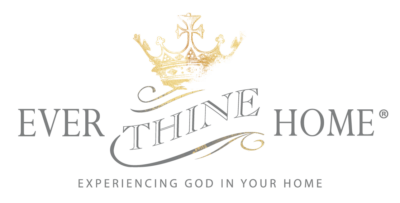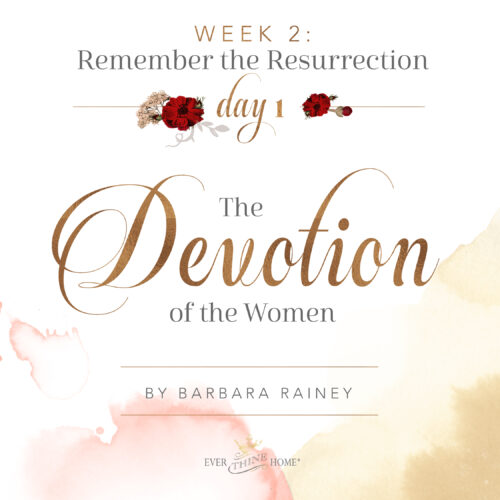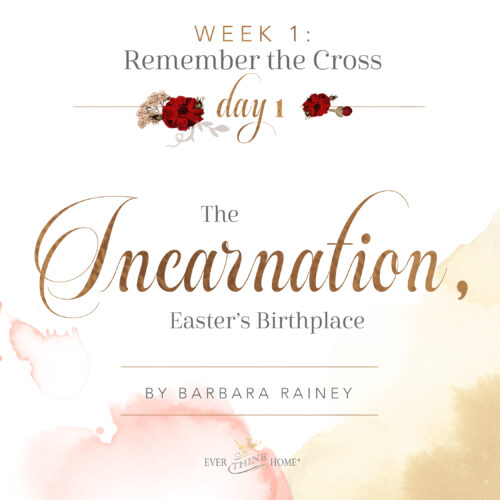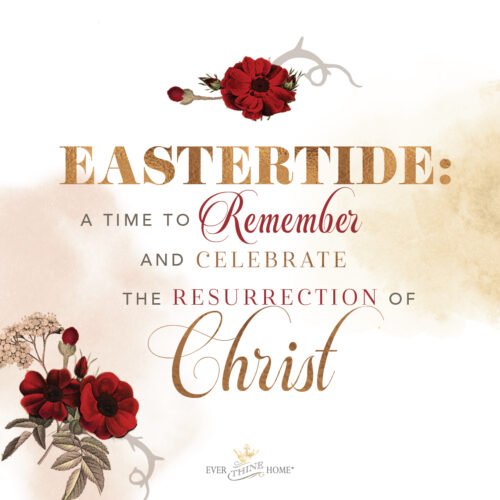
When is your Passover party? Wait. You haven’t planned it yet…
You might think that celebrating Passover is only appropriate in the Jewish tradition, but this holiday is the foundation upon which Easter stands. They are inextricably tied together.
Passover is the first feast God commanded His children to celebrate. This meal celebrates and commemorates God’s liberating of Israel from Egypt. What that means to those of us who grew up singing kids’ church songs is it’s the day “Pharaoh Pharaoh, oh baby, let [God’s] people go. *umph!* Yeah. Yeah. Yeah. Yeah.” Anyone else remember? Now I can’t get the song out of my head!
The Israelites were enslaved for 400 years. Serving and suffering, they cried out for God to deliver them.
God answered the Israelites’ plea for deliverance in His perfect timing. He called Moses from a burning bush in the desert and told him to return to Egypt to request freedom for God’s people. But Pharaoh denied Moses’ plea, so God sent ten plagues to punish Pharaoh and to prove His power.
During the tenth plague, God killed all the firstborns—humans and animals—living in the land of Egypt. That would have also included the Israelite slaves, God’s own people. But, as God always does, He provided a way out for anyone who would follow His specific instructions.
God instructed Moses to tell His people to sacrifice a perfect male lamb. First, they were to paint their doorposts with the lamb’s blood as a sign of obedience. Then when the angel of death saw the blood, he would pass over that house. After preparing their doorway, the family prepared a meal of lamb, unleavened bread, and bitter herbs.
The angel of death came at midnight (Exodus 11:4, 1:29) and took the life of every firstborn grandparent, parent, sibling, even tiny babies.
Shrieks and cries of family members rose across the land as they discovered the dead. God’s people listened, waited, and prayed. As morning neared God’s promise proved true; only those with the bloodstained doorpost were spared. God indeed passed over those who believed in Him for salvation and deliverance.
While this age-old story may feel a bit irrelevant today, understanding the deeper meaning makes our Easter celebrations rich and full of wonder at God’s power and love.
This is likely an entirely new idea to you. So here are five ideas for pulling off a night of remembrance, including a Passover meal.
1. Watch The Ten Commandments, the original movie starring Charlton Heston, to prepare your family on the weekend before Passover. Your family will have a better feeling for the story and the miracles of God’s deliverance.
2. Place a stuffed lamb on your table, maybe from your child’s toy bin, as a reminder that Jesus is “the Lamb of God who takes away the sin of the world” (John 1:29).
3. Paint your front door frame—or hang a red ribbon across—on Passover evening. Buy washable red paint to make this easy. Make this a family activity as you read the story of the first Passover (Exodus 11:1-10, 12:29-36).
4. Prepare a simple Seder meal and act out the first Passover with your children. Wear bathrobes, shawls, and sandals to pretend to be the Israelites. You can serve pita bread or Passover Rolls; hard-boiled eggs; charoset; a piece of parsley for each person; lamb or chicken for the meat; and grape juice or wine. See suggested recipes below. For traditional guide to this meal visit http://www.messianicseder.com/messianic_haggadah.html#top.
5. Go to the Jewish temple in your town and join them in their Passover meal.
The Passover is still meaningful and appropriate today. Any way you choose to celebrate is worth it. It’s good to remember the faithfulness of God to the Israelites all those centuries ago because that is the same God who is our God today: mighty, liberating, redeeming, pursuing, fighting for His people, and making a way to deliver us back unto Him.







Pingback: 9 Events to Celebrate Together During Easter Week – Powerline Productions
Passover celebration–whether traditional, Messianic, Christian or with any
combination/adaptation of ritual observance–is a joyful way to literally
“taste and see that YAHWEH is good.” (Psalm 34:8) Through the use of our
five senses, we literally walk through and experience both the Exodus from
Egypt and the Last Supper of the Gospel narratives. We HEAR the biblical
stories from our Bibles; we SEE and SMELL the paschal foods on the table;
we TOUCH and TASTE the lamb, matzah, bitter herbs, parsley and charoset
and thus EXPERIENCE the biblical texts. The common, everyday act of
eating reinforces the MEMORY of God’s great acts of deliverance for all
humans.
1. Passover also teaches us what God thinks about slavery and the
degradation of human beings who are created in His image. We are
reminded that Yahweh is the God of justice, Who “delivers the poor
and oppressed” and “hears the groaning of the prisoner.”(Psalm 102:20)
Passover is a sharp rebuke to all human governments and all civilizations that YAHWEH Elohim is NOT pleased with societies built on the backs of
slaves, or built on genocide. The Exodus narrative explicitly relates that
not only was Moses considered great at Pharoah’s court and highly regarded
by the Egyptians (Exodus 11:3) but also that a great “mixed multitude” left Egypt with the Hebrews (Exodus 12:38).
This clearly teaches us that God fully intended to deliver ALL the oppressed
slaves of Egypt–the downtrodden victims bought and sold from North and Sub-Saharan Africa, the Mediterranean nations and the Levantine regions
of Western Asia. This great deliverance of both Jews and Gentiles from Egypt foreshadows the great deliverance of ALL humanity from sin and death through the suffering, death and resurrection of the Victorious Lamb of God.
Passover celebration drives home this important aspect of the character
of God, and reminds us that we should not accept degradation of human
beings as “business as usual.” The God of love Who delivers the oppressed
reminds US to be not only peacemakers, but to speak up for those Who
have no voice, who our own society regards as outcasts–refugees;
immigrants fleeing war, extreme poverty and genocide; the undocumented
and “stateless” among us; the victims of human trafficking and modern
forms of slavery; the neighbor who does not look like or speak like us; the
homeless family or lonely widow or orphan.
2. The unique, worship-at-table is one of the most enduring features
of Passover observance. Table fellowship invites us to slow down, take
time, and interact with family, relatives, neighbors and strangers as we
celebrate and remember God’s mighty acts of deliverance for Hebrews
and Gentiles alike. The Passover Seder enjoins us to share hospitality:
“let those who are hungry come and eat.” This invitation recalls God’s
gracious extension of hospitality to human beings, not only to “taste and
see that the LORD is good” (Psalm 34:8) but to experience eternal life:
“Whoever eats My flesh and drinks My blood has eternal life, and I will
raise Him up at the last day.” (John 6:54)
3. For those of us who have believed the Good News of salvation through
Jesus the Messiah, Passover reminds us of the tremendous cost of liberation
and salvation. Eating the lamb recalls the fact that liberation from slavery
came at the cost of thousands of lambs and kids slaughtered in Egypt
3000 years ago–and reinforces for us the cost of humanity’s salvation
through the slaughtered Lamb of God, Who died on Passover to liberate
humans from the slavery of sin and death. Rabbi Shaul/Paul drives home
this point when he declares: “Christ our Passover is sacrificed for us…”
(I Corinthians 5:7) The Lamb of God is also called by the title of the
festival itself–“our Passover”–and He becomes OUR individual sacrifice
for sin, thus fulfilling the Exodus passage: “This is what the LORD did
for me when I came out of Egypt.” (Exodus 13:8) This personal
appropriation of the Lamb’s victory comes when we individually trust
in the salvific work of the “blood of the Lamb,” shed for all humankind.
For these reasons and more, Passover Seders remain a joyous, festive
celebration that refreshes our faith and reminds us of the goodness
of God, Who liberates us from oppression and is faithful to bring us
from bondage to freedom and from death to eternal life.
NEXT YEAR IN THE NEW JERUSALEM!
Pingback: The Climax of the Entire Calendar is Upon Us | Kristin Kjorlaug
So Beautifull! Thank
You!!!
You could also join with your local Messianic synagogue (Jews who believe in Jesus) for their seder. They are usually a beautiful blend of the traditional seder and the revelation of Jesus’ sacrifice. Not every town has one, but more and more do. You can look at tikkunamerica.org or look up the UMJC or MJAA synagogue closest to you.
I am so blessed that my children attend a school where the Principal loves Israel. Over, 20 years ago she has brought in Messianic Pastors who lead us all in a traditional Seder meal. It’s a wonderful learning experience & with your ministry I feel like I have grown so much!
Thank you for your article!
For Biblical Feast Decor:
https://inward-beauty-boutique.myshopify.com/admin/blogs/94680323/articles/3668312094
Pingback: Even if… – Missionary Mamas
Pingback: 20 Ways to Celebrate Easter | Family Radio CHRI
Thank you so much for these great ideas. Your blog and radio broadcasts have really inspired me to make the time leading up to and the day itself meaniful.
Wonderful ideas. Tried to order Behold the Lamb cards but they are ALL OUT.😢
Easter actually existed long before Passover, the Cross, and the Resurrection of our LORD — so, we really need to pay attention… come to the cross, recognizing the calendar by which the crucifixion operated… We come away with a whole new perspective, and understanding of the blood of the Lamb that was shed.
Perhaps “Easter” is not what we want on the so-called Christian calendar if we desire to be walking out the very Word of God…
Something to think about, and consider in this hour that we presently live…
“Come out from among them, and be ye separate….”(Jeremiah, 2 Corinthians, Revelation)
Yes, I agree. Easter has been labeled a Christian Holiday, but it’s origin has no Christian roots what so ever. Passover is Passover, plain and simple.
I am sorry, but I do not understand what you mean by “ Easter actually existed long before Passover”. Could you please explain further?
Thank you
Cynthia,
I just reread our post and the message is that Passover existed before Easter not Easter before Passover. The Jewish celebration of Passover with the sacrifice of a spotless lamb was the prelude, the foretelling of the sacrifice of the spotless Lamb of God on the cross on Good Friday.
Hope this clears up any confusion.
Thanks for reading and following my blog!
Hi Cynthia…the first statement was actually the true one. Look up explanations of Easter for better understanding, but I will try to hit the high spots! Easter was actually a pagan celebration for Estra, goddess of fertility…therefore, eggs, bunnies, gifts. As Christianity began to spread, rulers and “churches “ felt that if they joined Estra celebration with the resurrection, more pagans could be won over… same with Christmas and pagan celebrations of winter solstice. many pagan influences remain. I like the ideas of Passover celebration much better! Hope this helps!